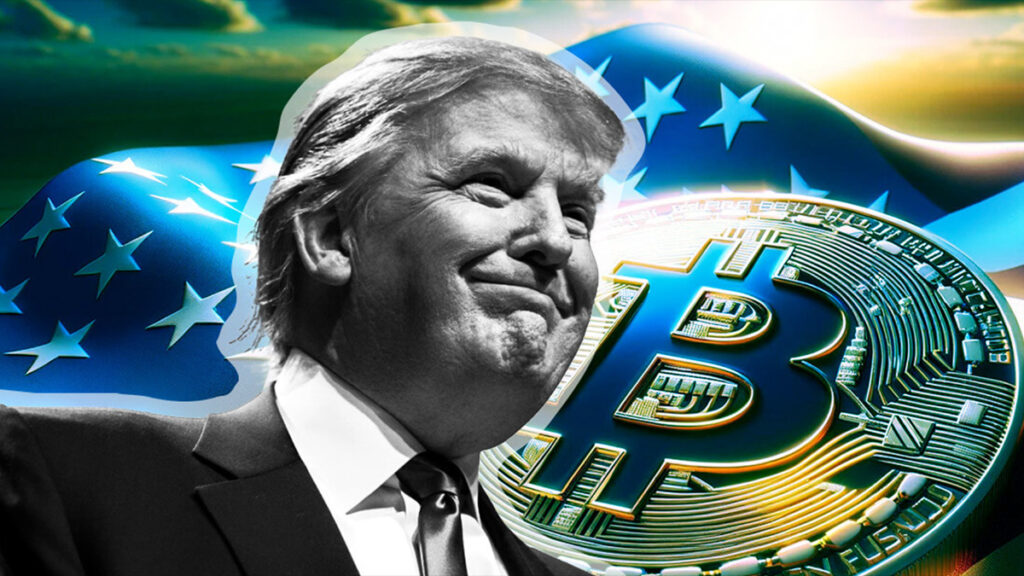China’s Digital Yuan Clashes with Bitcoin—Who Wins the Future of Money?
Beijing’s CBDC bulldozes into crypto territory—state-controlled convenience vs decentralized defiance. The Digital Yuan isn’t just a currency; it’s a surveillance tool wrapped in blockchain packaging.
Subheader: The Privacy Trade-Off
Want instant settlements and no volatility? The Digital Yuan delivers—alongside every transaction logged by the PBOC. Bitcoin’s pseudonymity looks downright rebellious in comparison.
Subheader: Liquidity Lockdown
China’s rollout forces a brutal choice: embrace traceable efficiency or fight for financial sovereignty. Meanwhile, Wall Street shrugs and buys both sides—because profits trump ideology every time.
How CBDC Adoption, US Crypto Laws, And China’s AI Policy Collide

Trump’s Bitcoin Strategy vs China’s Digital Yuan
The digital yuan vs bitcoin battle took a really surprising turn when Trump established a strategic Bitcoin reserve of approximately 200,000 BTC (worth around $18 billion at the time of writing) back in March 2025. Rather than liquidating these assets that law enforcement previously seized from various criminal cases, the government is now actually holding them as strategic national assets alongside a stockpile of other cryptocurrencies as well.

Rep. Dusty Johnson stated:
Meanwhile, China has already launched its digital yuan across dozens of cities right now. In Changshu, for instance, public workers currently receive their salaries in e-CNY, and over 10 million merchants now accept it too. China also recently announced connecting its Digital RMB to all 10 ASEAN countries and 6 Middle Eastern nations – potentially bypassing about 38% of global trade through the U.S.-dominated SWIFT system.
CBDC Adoption Accelerates Globally
The People’s Bank of China has confirmed plans for aggressive CBDC adoption in 2025, expanding the digital yuan beyond just local commerce to cross-border and corporate transactions as well.
The PBoC stated in their press release:
Three specialized CBDC-based service centers are currently being established at Shanghai’s airports specifically for international visitors, which really highlights China’s global ambitions for its digital currency.
This ongoing digital yuan vs Bitcoin competition represents a fundamental cbdc adoption challenge: can state-controlled digital currencies coexist with decentralized cryptocurrencies like Bitcoin in the future?
US Regulatory Challenges
Despite Trump’s seemingly crypto-friendly stance, the regulatory landscape remains quite contentious at present. The Senate recently failed to advance the GENIUS ACT for stablecoin regulation, and opinions are definitely divided.
Sen. Jeff Merkley criticized the bill:
Sen. Josh Hawley expressed different concerns about the legislation:
These regulatory hurdles clearly illustrate the complex balance between digital yuan vs Bitcoin approaches to financial innovation in today’s rapidly changing landscape.
Freedom vs Control in Digital Finance
Digital yuan and Bitcoin are basically opposing plans for what the financial future could be. CBDCs give governments greater control over the economy, make payments quicker, help more people participate in banking, and help reduce crime, though they also lead to less privacy and could disturb traditional banks.
However, using Bitcoin comes with being able to handle your finances without central control, worldwide access, and transparent processing, but there’s still the issue of frequent price swings and the difficulty of dealing with regulations.
No fewer than 130 countries are developing digital currencies, while at the same time, cryptocurrency use is increasing around the world. China’s AI influence in financial sectors appears to serve its digital currency aim, by giving the government better control over financial transactions.
What is developing at present is an arrangement where CBDC looks after common financial functions while Bitcoin and similar cryptocurrencies provide extra autonomy from traditional financial institutions overseen by governments.

